BUSINESS SECURITY CENTER
Help protect what you've built
Scams and fraud can hit any business — big or small. That’s why Chase offers tools and alerts to help you spot threats early, protect your money and keep your business moving forward.

Activate Chase security features for greater control
Please note: Features may not be available for all accounts. See details.
CHECK MONITORING
Keep an eye on outgoing checks

Check Monitoring can help you avoid potential fraud by letting you review outgoing checks over a dollar amount you choose. If someone tries to cash a check at or above that amount, you’ll get a heads-up and can approve or reject it online.
You don’t need to enter check details in advance — just set your review limit and monitor checks as they come through.
CHECK PROTECTION SERVICES
Pre-clear your checks for ultimate control
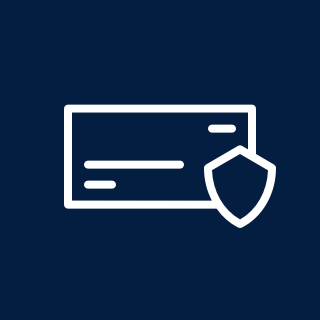
Check Protection Services, or “Positive Pay,” is an alternative to Check Monitoring. You can upload or enter basic info about the checks you’ve written (like the check number and amount). Then, Chase watches for any mismatches.
If a check doesn’t match what you submitted, you get an alert and decide whether to approve or reject it — right from your online dashboard.
ACH DEBIT BLOCK
Block unwanted withdrawals

ACH Debit Block gives you control over who can take money from your account using ACH (Automated Clearing House) payments. You can block all ACH debits entirely or create an approved list of businesses you trust to make withdrawals.
ACCOUNT ALERTS
Stay in the know
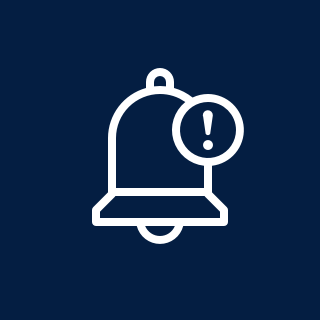
Account Alerts let you know if something important happens with your business accounts - like a low balance, a large transaction or possible fraud. You choose what alerts to get and how you want to get them — by email, text or both.
ACCESS & SECURITY MANAGER℠
Delegate financial tasks
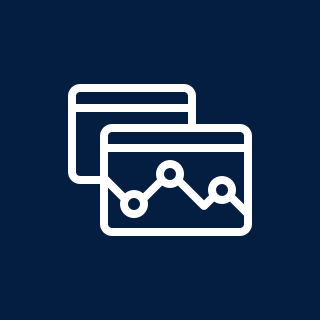
Access & Security Manager makes it easy to give your employees access to your Chase business accounts. You decide who can do what, from viewing balances to making payments, and you can update or remove access anytime.
How one new scam is targeting business owners
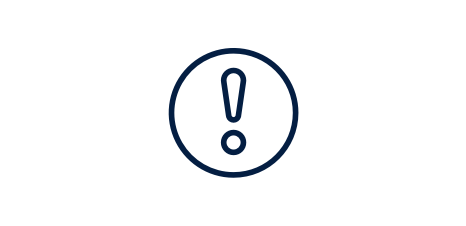
 They told me they were from Chase for Business, and I believed them
They told me they were from Chase for Business, and I believed them
The scammer called and knew my business name and phone number, which made them seem legitimate. They claimed I needed to quickly move my money to a new account to prevent fraud. They offered to help and asked for my authentication code. I was so worried, so I provided it. Everything sounded convincing at the time.
I wish I’d known:
- Chase will never ask you to move or send money to resolve a fraud issue.
- Chase will never ask you for your password or unique authentication code.
- Call Chase to verify it’s us — scammers are getting better at imitating banks.
- If someone is pushing you to move fast be especially wary — it’s a common scammer tactic.
- It’s important to share these tips with your employees, too.
Scams are evolving fast — here are some trending threats
Imposter and AI voice cloning

These scams work because they feel personal — an email from the "boss," a text from a "vendor," a call from your "bank" or even a realistic AI-generated voice claiming to be the boss. The tone feels urgent, the request seems reasonable — and just like that, money is gone.
Check fraud
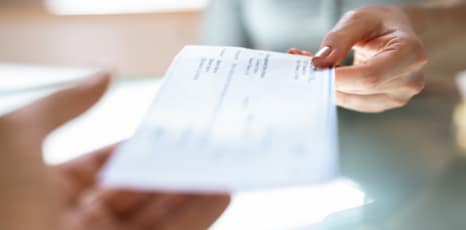
Business checks are still a common way to pay vendors — but they’re also a favorite target for fraud. Scammers steal checks, change the amounts, copy them or deposit them twice. Or they’ll send a fake check or one that bounces, and claim they overpaid, hoping you’ll send them a refund.
Business email compromise

Scammers gain access to an email address and pretend to be vendors or people you know to fraudulently collect money and information. Unlike other cyberattacks that rely on technical vulnerabilities, business email compromise focuses on exploiting human vulnerabilities and trust.
Everyday scams that can catch businesses off guard
From fake listings to overpayment tricks, these scams hit when you’re busy, moving fast and trusting things will go as expected — often slipping through before anyone realizes what’s happening.

Fake invoices or “rush” requests
You get a call or email that seems to come from a vendor or contractor asking for urgent payment — often with a believable reason (utilities, taxes, late fees). If you or an employee sends this “rush” payment to a scammer, you most likely will not get the money back.

Fake invoices or “rush” requests
You get a call or email that seems to come from a vendor or contractor asking for urgent payment — often with a believable reason (utilities, taxes, late fees). If you or an employee sends this “rush” payment to a scammer, you most likely will not get the money back.

Investment/Crypto scams
You’re approached with what sounds like a smart business move — an opportunity to invest in a new platform, crypto fund or program that promises solid returns with little risk. Sometimes it comes from someone you met in a business group on social media. But once you send the money, it disappears — or the platform keeps “growing your balance” without letting you withdraw.

Investment/Crypto scams
You’re approached with what sounds like a smart business move — an opportunity to invest in a new platform, crypto fund or program that promises solid returns with little risk. Sometimes it comes from someone you met in a business group on social media. But once you send the money, it disappears — or the platform keeps “growing your balance” without letting you withdraw.

Services fraud
Scammers pose as legitimate service providers — like IT support, cleaning crews or maintenance teams. They create fake websites, send professional-looking invoices or even show up on-site offering deals. Once hired, they collect payment details or sensitive business information — and either vanish or use what they gathered to commit further fraud.

Services fraud
Scammers pose as legitimate service providers — like IT support, cleaning crews or maintenance teams. They create fake websites, send professional-looking invoices or even show up on-site offering deals. Once hired, they collect payment details or sensitive business information — and either vanish or use what they gathered to commit further fraud.

Overpayment and cash-back scams
A contractor asks for full payment upfront or says they need to buy materials before starting work. Once paid, they disappear — or do a poor job and won’t respond.

Overpayment and cash-back scams
A contractor asks for full payment upfront or says they need to buy materials before starting work. Once paid, they disappear — or do a poor job and won’t respond.

Merchandise scams
You buy equipment or inventory from a website or ad that looks legit. The price seems great — until nothing shows up.

Merchandise scams
You buy equipment or inventory from a website or ad that looks legit. The price seems great — until nothing shows up.

Fake property listings
Scammers list fake office spaces or copy real listings, replacing the contact info. They ask for an application fee, deposit or first month’s rent — then vanish.

Fake property listings
Scammers list fake office spaces or copy real listings, replacing the contact info. They ask for an application fee, deposit or first month’s rent — then vanish.
Tips to help make your business harder to hack
You don’t need to be a tech expert to help protect your business. A few routine habits can go a long way in helping keep your accounts, employees and data safe from scammers and cybercriminals.
Strengthen your logins and systems
- Consider using a password manager to generate and store strong logins
- Turn on multifactor authentication (MFA) for all systems — especially email and banking
- Don’t reuse passwords across banking, payroll, and vendor platforms
- Keep all software, apps and devices updated with the latest patches
- Install antivirus software and make sure it stays up-to-date
Train your team to recognize and avoid scams
- Teach employees how to spot phishing emails, texts and AI-generated voice scams
- Remind them never to click suspicious links or download unknown attachments
- Encourage them to pause and verify — don’t trust caller ID or email display names
- Reinforce that if something feels off, it probably is
- Share real scam examples and run mock phishing tests to keep awareness high
- Advise caution if they're being pressured to pay immediately with a real-time payment method that's irreversible, like Zelle® or Wire transfers, because once they send money, they may not get it back if something goes wrong
Help strengthen safeguards around how you send and receive payments
- Instead of mailing paper checks that can be stolen or modified, consider switching to a digital payment method like ACH, Zelle®, Chase Online℠ Bill Pay or Wire transfers
- Enroll in Check Monitoring or Check Protection Services to help stop fraud
- Verify any unexpected payment requests by calling the vendor or team member directly
- Be wary of customers who want to overpay for goods and services
- Ensure that a check clears before issuing a refund
- Use permanent ink on checks and mail them from inside the post office
Stay informed and one step ahead
Scammers don’t sit still — and neither should you. That’s why we’ve put together quick reads and real-world insights to help you understand what’s out there, what’s new and how to help keep your business protected.
Start with these featured articles:
Is your business still using checks? Read this first.

Learn why checks are still a major target for fraud, how scams like “check washing” and duplicate deposits work, and the simple steps you can take to help protect your payments.
Imposter scams are getting smarter. Is your team ready?

From voice cloning to fake emails, imposters use urgency and trust to trick businesses into sending money or info. See real examples and learn how to help stop them.
Protecting your business from today’s top cyber risks

Cybercriminals are finding new ways to target businesses of every size — and small businesses are often a prime target. Learn which risks are most common right now, why your business could be in their sights and steps you can take to help stay protected.
Suspect fraud? We’re here to help.
If something doesn’t seem right, contact us right away so we can help guide you.
Call us at 1-800-242-7338
or reach out to your Chase Business Banker directly.
